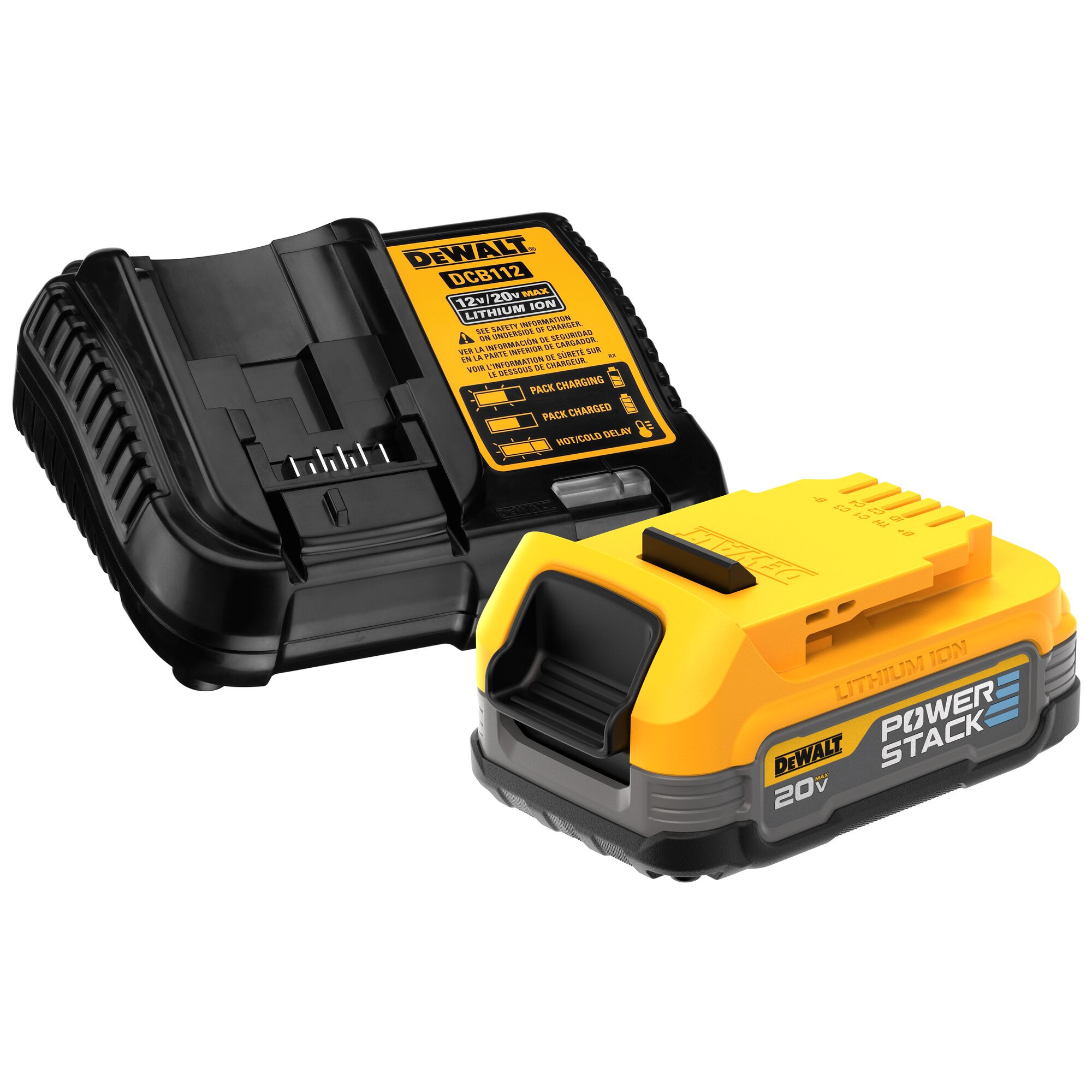If you’re wondering how cold Dewalt batteries can get, you’ve come to the right place. Dealing with cold temperatures can be a challenge for electronic devices, and batteries are no exception. But fear not, we’ve got you covered with all the information you need about Dewalt batteries and their cold resistance. So, let’s dive in and explore the freezing depths of Dewalt battery performance!
When the temperature drops, many people wonder how it affects their trusty Dewalt batteries. After all, a reliable power source is essential for those who rely on their tools, whether for work or play. So, how cold can Dewalt batteries get before they start to lose their oomph? Well, that’s precisely what we’re here to find out. So grab a warm drink, get cozy, and let’s unravel the chilly mysteries of Dewalt battery performance in cold weather.
Whether you’re a professional tradesperson or a DIY enthusiast, understanding how temperature affects your power tools is crucial. And when it comes to Dewalt batteries, knowing their cold resilience is no exception. So, get ready as we explore the impact of chilly temperatures on Dewalt batteries and discover tips to keep them running smoothly in the freezing cold. So, without further ado, let’s embark on this frosty battery adventure!

How Cold Can DeWalt Batteries Get? Exploring the Temperature Limits of DeWalt Batteries
DeWalt batteries are known for their reliability and durability, making them a popular choice among professionals and DIY enthusiasts. However, like all batteries, they have their limitations, especially when it comes to operating in extreme temperatures. In this article, we will delve into the topic of how cold DeWalt batteries can get and what impact low temperatures have on their performance.
Understanding the Temperature Range of DeWalt Batteries
DeWalt batteries are designed to function within a specific temperature range. The recommended operating temperature for most DeWalt lithium-ion batteries is between 32°F (0°C) and 113°F (45°C). This range ensures optimal performance and longevity of the batteries. Operating the batteries outside of this temperature range can have adverse effects on their performance, efficiency, and overall lifespan.
When exposed to temperatures below freezing, DeWalt batteries may experience reduced capacity and output. The chemical reactions within the battery slow down in colder temperatures, which can lead to a decrease in power. In extreme cases, the battery may not work at all. It’s important to note that exposing DeWalt batteries to temperatures below their specified limit can also cause permanent damage, reducing their overall lifespan.
The Effects of Cold Temperatures on DeWalt Battery Performance
When DeWalt batteries are exposed to cold temperatures, several performance issues may arise. One of the most common problems is a decrease in the battery’s capacity. Cold temperatures cause the electrolyte in the battery to thicken, resulting in higher internal resistance. This increased resistance hampers the flow of electrons and reduces the battery’s ability to deliver power.
In addition to reduced capacity, cold temperatures can also slow down the chemical reactions within the battery cells. This can significantly impact the battery’s ability to charge and discharge efficiently. As a result, the runtime of power tools and other devices powered by DeWalt batteries can be significantly shorter in cold conditions. It is worth noting that once the battery starts operating again in warmer temperatures, its performance should return to normal.
Precautions to Take When Using DeWalt Batteries in Cold Conditions
While DeWalt batteries are designed to withstand a range of temperatures, it is important to take certain precautions when using them in cold conditions. Here are some tips to ensure optimal battery performance in cold weather:
1. Store batteries in a warm environment: When batteries are not in use, it is advisable to store them in a temperature-controlled environment. Avoid leaving them in cold sheds or garages where temperatures can drop below freezing.
2. Warm up batteries before use: If you need to use your DeWalt batteries in cold conditions, it is recommended to warm them up before use. Bring them indoors and allow them to reach room temperature before inserting them into your power tools or devices.
3. Keep batteries insulated: During use in cold weather, consider insulating the battery and the power tool with a blanket or a thermal cover. This can help retain some of the heat generated by the battery and prevent it from cooling down too quickly.
4. Monitor battery performance: Pay close attention to the performance of the battery when using it in cold temperatures. If you notice a significant decrease in power or runtime, it may be best to discontinue use and allow the battery to warm up before continuing.
5. Avoid charging cold batteries: Charging a cold battery can further damage its performance and reduce its overall lifespan. Ensure that the battery has warmed up to room temperature before attempting to charge it.
In conclusion, while DeWalt batteries are designed to operate within specific temperature limits, exposing them to cold conditions can have detrimental effects on their performance. It is important to take precautions, such as storing them in a warm environment and warming them up before use, to ensure optimal battery performance in cold weather. By following these guidelines, you can help prolong the lifespan of your DeWalt batteries and maintain their efficiency even in challenging temperatures.
Key Takeaways: How Cold Can Dewalt Batteries Get?
- Dewalt batteries can handle temperatures as low as -20 degrees Fahrenheit.
- Extreme cold temperatures can affect the performance and lifespan of Dewalt batteries.
- It is advisable to keep Dewalt batteries in a warm environment when not in use in freezing temperatures.
- Using battery warmers or insulators can help protect Dewalt batteries from extreme cold.
- Regularly checking the battery capacity and charging the batteries at room temperature can maximize their performance and longevity.
Frequently Asked Questions
When it comes to Dewalt batteries, many people wonder how cold they can get before it becomes an issue for their performance. Here are some frequently asked questions regarding the cold temperatures and Dewalt batteries.
1. Can Dewalt batteries be used in cold weather?
Yes, Dewalt batteries can be used in cold weather conditions, but their performance may be affected. Extreme cold temperatures can cause the battery’s capacity to decrease temporarily, resulting in reduced run-time. However, the battery will regain its full capacity once it warms back up. It’s important to note that using a battery in extremely cold weather can also cause it to temporarily stop working until it warms up again.
Additionally, it is recommended to store your Dewalt batteries in a dry and cool environment when not in use, as exposure to extreme cold temperatures for extended periods can have long-term effects on battery life.
2. How does cold weather affect Dewalt battery life?
Cold weather can have a negative impact on the overall life of a Dewalt battery. When a battery is exposed to very low temperatures, its chemical reactions slow down, resulting in a reduction of the battery’s performance. This can lead to a decrease in run-time and overall battery life.
To mitigate the effects of cold weather on battery life, it is recommended to keep the battery in a warmer environment before using it. Allow the battery to warm up before inserting it into a tool, as this will help maintain its optimal performance and extend its overall lifespan.
3. Is there a minimum temperature for Dewalt batteries?
Dewalt batteries are designed to function within a specific temperature range. While the exact specifications may vary depending on the specific Dewalt battery model, most batteries can operate between -4°F (-20°C) and 122°F (50°C). However, it’s important to note that the performance of the battery may decrease at temperatures close to the lower or upper limits of this range.
Using a Dewalt battery below the recommended minimum temperature can cause temporary performance issues, such as reduced run-time. Additionally, extreme cold temperatures can also cause irreversible damage to the battery, shortening its overall lifespan.
4. How can I protect Dewalt batteries in cold weather?
To protect your Dewalt batteries in cold weather, there are a few measures you can take. Firstly, avoid leaving the batteries exposed to extremely cold temperatures for prolonged periods. If possible, store the batteries in a temperature-controlled environment when not in use.
When using the batteries in cold weather, try to keep them warm by storing them in a pocket or insulated bag close to your body before use. This will help maintain their capacity and performance. Additionally, regularly inspect the batteries for any signs of damage or excessive cold exposure, and if in doubt, consult the manufacturer for further guidance.
5. Can I charge Dewalt batteries in cold weather?
It is generally advised to avoid charging Dewalt batteries in extremely cold weather. Charging a battery in very low temperatures can lead to issues such as reduced charging efficiency and potentially damaging the battery cells. If the battery is too cold, the charging process may be ineffective or delayed.
If you need to charge a Dewalt battery in cold weather, it is recommended to slightly warm up the battery to room temperature before attempting to charge it. This can be done by bringing the battery indoors or placing it in a warmer environment for a short period. Always refer to the specific battery model’s guidelines provided by Dewalt for more precise instructions regarding charging in cold temperatures.

Summary
Dewalt batteries can handle temperatures as low as -4 degrees Fahrenheit, but they might not work as well in extreme cold. Cold weather can decrease battery life and reduce overall power output. To protect your Dewalt batteries, store them in a warm environment when not in use and avoid using them in freezing temperatures if possible.
However, if you need to use your Dewalt batteries in the cold, keep them warm by placing them inside a pocket or using a battery warmer. Always follow the manufacturer’s guidelines and avoid exposing the batteries to extreme heat or cold for an extended period. Take care of your batteries, and they will last longer and perform better.